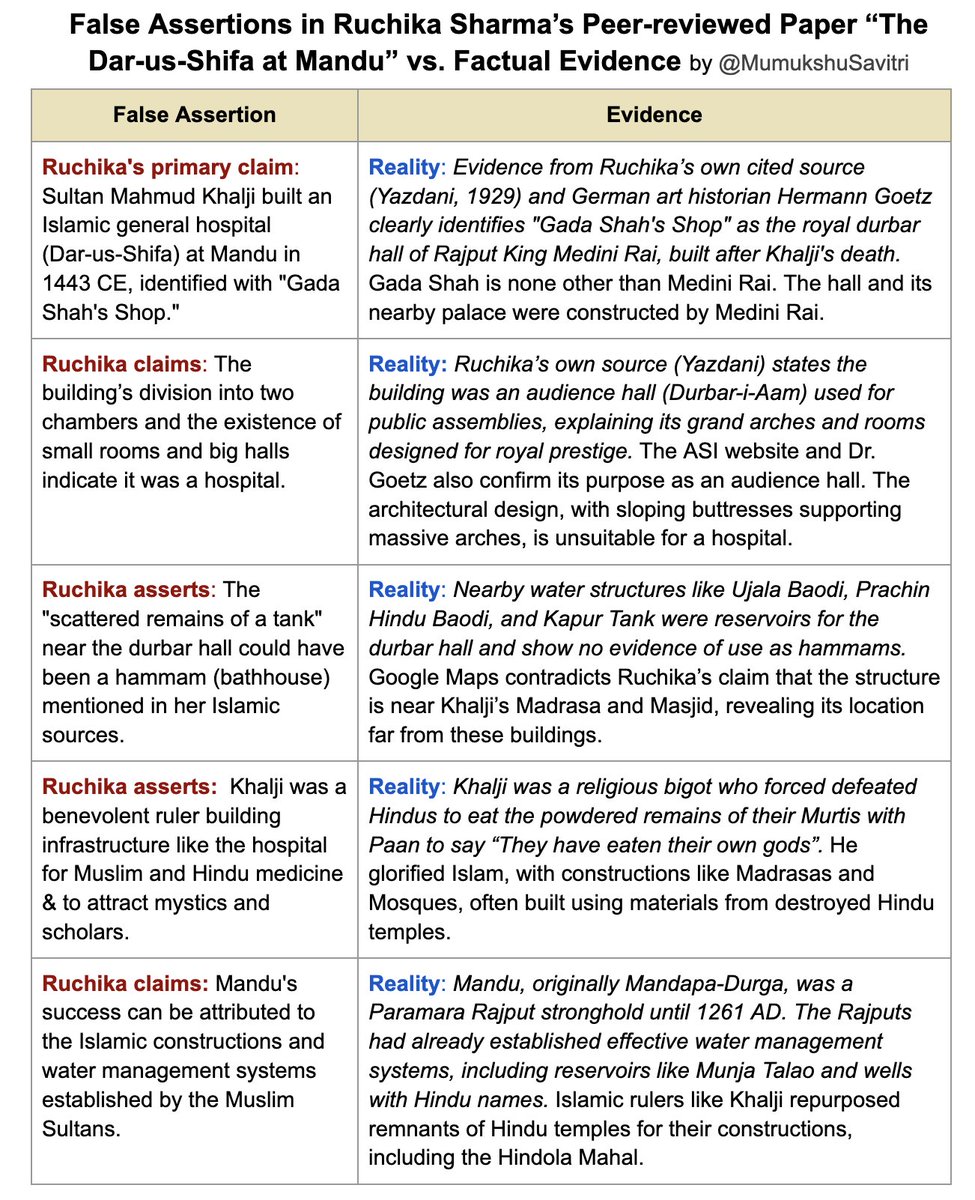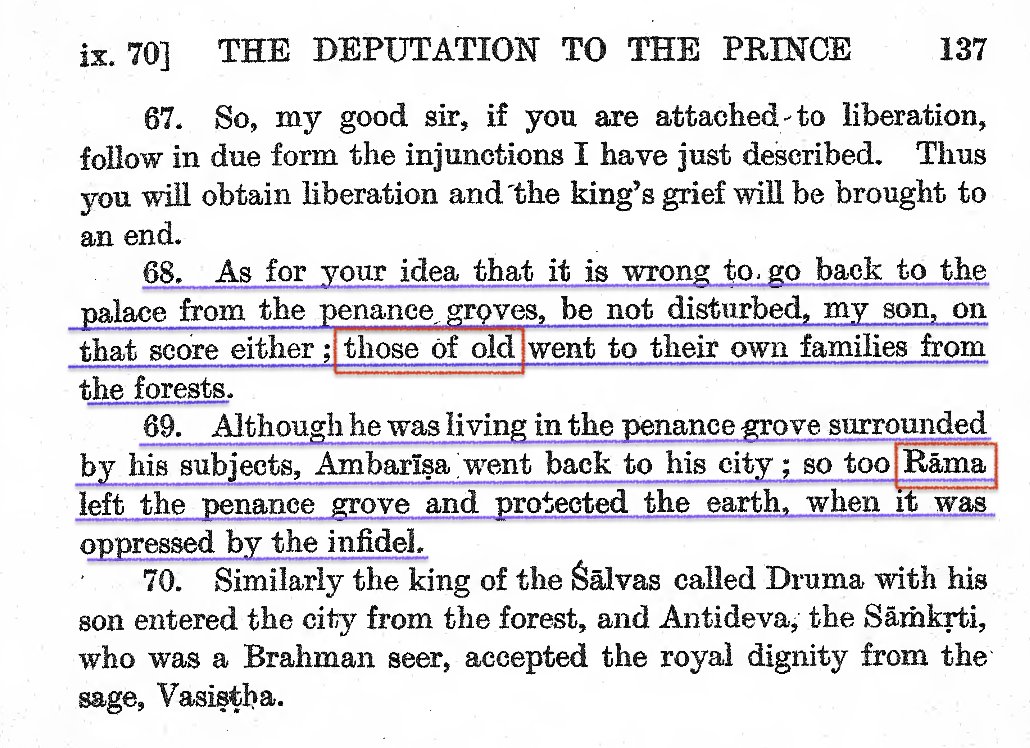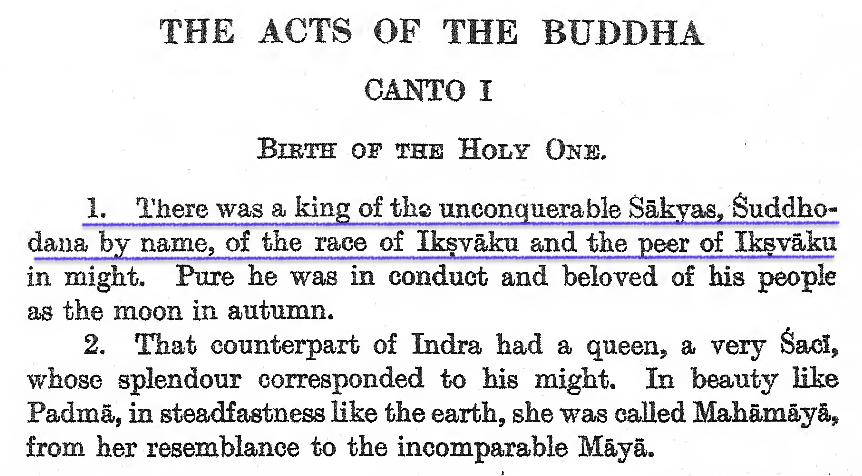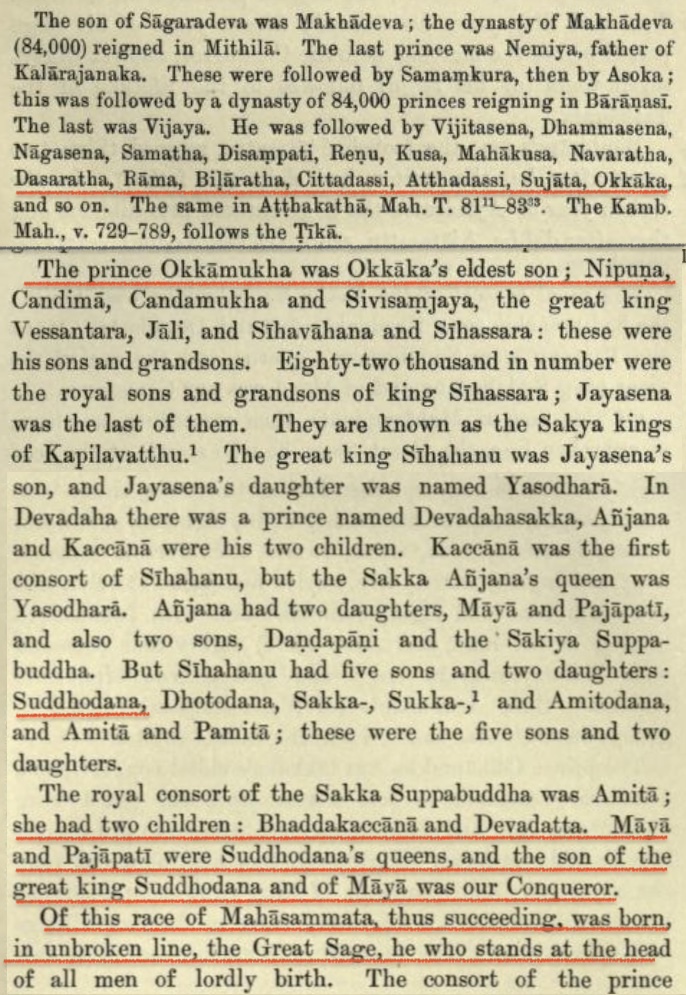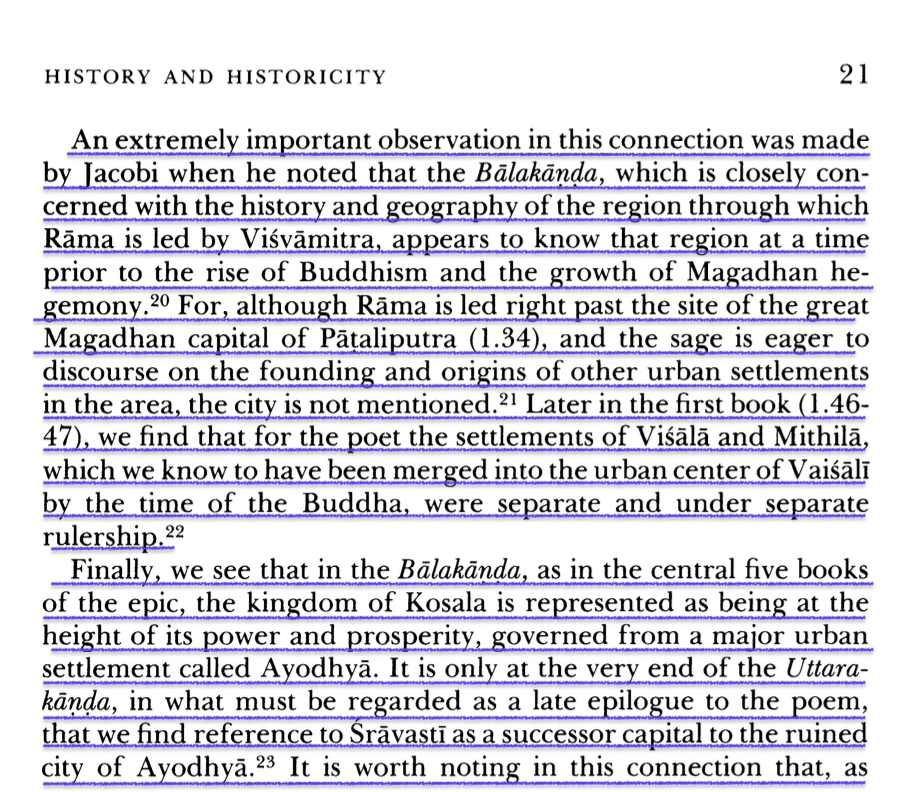1
Maize is supposed to have been brought to India by the Portugese as a New world crop. But clearly distinctive stone carvings of maize are clearly visible in at least 3 Hoysala temples at Somnathpur, Halebid & Belur in Karnataka.

Maize is supposed to have been brought to India by the Portugese as a New world crop. But clearly distinctive stone carvings of maize are clearly visible in at least 3 Hoysala temples at Somnathpur, Halebid & Belur in Karnataka.
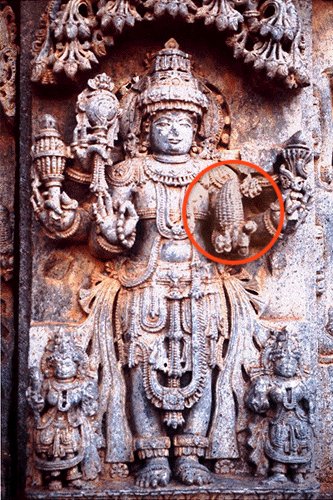

2
Authors Johannessen & Parker, published a research paper “Maize Ears Sculptured in 12th & 13th Century A.D. India as Indicators of Pre-Columbian Diffusion," in Economic Botany providing archaeological & literary evidence that Maize (corn) was present in India from 5th c. CE.
Authors Johannessen & Parker, published a research paper “Maize Ears Sculptured in 12th & 13th Century A.D. India as Indicators of Pre-Columbian Diffusion," in Economic Botany providing archaeological & literary evidence that Maize (corn) was present in India from 5th c. CE.

3
Their study revealed that Hoysala stone carvings of attendants to gods hold distinctly identifiable Maize ears with very specific Mudras. They analyzed grain size, number of rows, physical characteristics & shape compared to real specimens to identify the carvings as maize.

Their study revealed that Hoysala stone carvings of attendants to gods hold distinctly identifiable Maize ears with very specific Mudras. They analyzed grain size, number of rows, physical characteristics & shape compared to real specimens to identify the carvings as maize.


4
They ruled out possible hypothetical alternatives like annona, pandanus, & mango fruits by comparing patterns. None of the alternative fruits displayed segments that are rectilinear or arranged in straight parallel rows aligned with fruit axis, leaving maize as the only choice.

They ruled out possible hypothetical alternatives like annona, pandanus, & mango fruits by comparing patterns. None of the alternative fruits displayed segments that are rectilinear or arranged in straight parallel rows aligned with fruit axis, leaving maize as the only choice.


5
The research suggests that maize was used as a symbol of agricultural fertility & abundance. This is supported by Hindu manuals of temple iconography, which suggest golden colored offerings representing abundance for Shri Vishnu, Devi Lakshmi & their attendants.

The research suggests that maize was used as a symbol of agricultural fertility & abundance. This is supported by Hindu manuals of temple iconography, which suggest golden colored offerings representing abundance for Shri Vishnu, Devi Lakshmi & their attendants.


6
The authors also discuss evidence of maize pollen from N. Kashmir at Tosh Maidan. The cores of maize pollen discovered at Tosh Maidan were analyzed & radiocarbon dated in zones as far back as 7600 BCE. So maize was likely present in India, several millennia ago.
The authors also discuss evidence of maize pollen from N. Kashmir at Tosh Maidan. The cores of maize pollen discovered at Tosh Maidan were analyzed & radiocarbon dated in zones as far back as 7600 BCE. So maize was likely present in India, several millennia ago.

7
Most importantly, they cite several literary references in Hindu literature dating to 5th c. CE in texts such as Siva Purana, Garuda Purana & Linga Purana which refer to maize (corn), husks, grains, etc. & acts of harvesting, gleaning, breaking & pounding maize.
Most importantly, they cite several literary references in Hindu literature dating to 5th c. CE in texts such as Siva Purana, Garuda Purana & Linga Purana which refer to maize (corn), husks, grains, etc. & acts of harvesting, gleaning, breaking & pounding maize.

8
In summary, numerous Hindu temple carvings in Karnataka from 12th & 13th c. along with archaeological evidence of maize pollen & literary evidence in 5th c. Hindu texts all prove that maize was an Indian crop long before the Portugese arrived in India prior to 1492 CE.
In summary, numerous Hindu temple carvings in Karnataka from 12th & 13th c. along with archaeological evidence of maize pollen & literary evidence in 5th c. Hindu texts all prove that maize was an Indian crop long before the Portugese arrived in India prior to 1492 CE.
9
The authors conclude that maize may have come through sailboats from South America to India earlier. But maize has existed in India for centuries & it is far more likely that sailors from South India were the ones who carried it to the Americas instead.
The authors conclude that maize may have come through sailboats from South America to India earlier. But maize has existed in India for centuries & it is far more likely that sailors from South India were the ones who carried it to the Americas instead.

10
References to various grains such as maize are also found in Tamil Sangam literature. Pre Sangam era architectural treatises are conjectured to refer to people from Mayan culture, indicating there may very well have been contact between the two continents much earlier.

References to various grains such as maize are also found in Tamil Sangam literature. Pre Sangam era architectural treatises are conjectured to refer to people from Mayan culture, indicating there may very well have been contact between the two continents much earlier.


11
Such comprehensive evidence indicates maize was an Indian crop & not an export brought by the Portugese to Indian shores. As technology enables us to unearth more archaeological & literary evidence, many more such myths about food crops of India are likely be busted.
Such comprehensive evidence indicates maize was an Indian crop & not an export brought by the Portugese to Indian shores. As technology enables us to unearth more archaeological & literary evidence, many more such myths about food crops of India are likely be busted.

Reference :
“Maize ears sculptured in 12th and 13th century A.D. India as indicators of pre-Columbian diffusion”-
Carl Johannessen & Anne Parker
researchgate.net/publication/22…
“Maize ears sculptured in 12th and 13th century A.D. India as indicators of pre-Columbian diffusion”-
Carl Johannessen & Anne Parker
researchgate.net/publication/22…
• • •
Missing some Tweet in this thread? You can try to
force a refresh





























